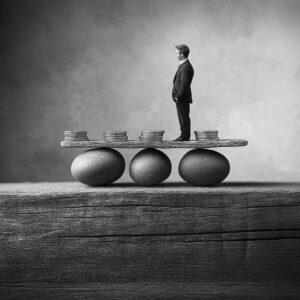'Inequality' Ideas

Inequality quotes have been a powerful tool in shedding light on the injustices and disparities that exist in society. They have served as a call to action, inspiring individuals to fight for equality and justice. From Martin Luther King Jr.’s iconic “I have a dream” speech to Mala…Read More
Inequality quotes have been a powerful tool in shedding light on the injustices and disparities that exist in society. They have served as a call to action, inspiring individuals to fight for equality and justice. From Martin Luther King Jr.’s iconic “I have a dream” speech to Malala Yousafzai’s “We cannot all succeed when half of us are held back,” these quotes have sparked movements and challenged the status quo. They have also served as a reminder of the progress that still needs to be made and the importance of standing up against discrimination. Inequality quotes continue to inspire and unite people in the fight for a more equal world.Read Less
Inequality quotes have been a powerful tool in shedding light on the injustices and disparities that exist in society. They have served as a call to action, inspiring individuals to fight for equality and justice. From Martin Luther King Jr.’s iconic “I have a dream” speech to Malala Yousafzai’s “We cannot all succeed when half of us are held back,” these quotes have sparked movements and challenged the status quo. They have also served as a reminder of the progress that still needs to be made and the importance of standing up against discrimination. Inequality quotes continue to inspire and unite people in the fight for a more equal world.

Narrow 'Inequality' Results By:
493 Esteemed 'Inequality' Quotations and Sayings
Inequality – Symbolic Value
Inequality is a concept that has been deeply ingrained in human society since the beginning of time. It is a term that is often used to describe the unequal distribution of resources, opportunities, and power among individuals or groups. However, beyond its literal meaning, inequality also holds a symbolic value that reflects the complex dynamics of human relationships and societal structures.At its core, inequality symbolizes the inherent differences between individuals and groups, whether it be in terms of wealth, social status, or privilege. These differences can be seen as a reflection of the diverse nature of humanity, with each person possessing their own unique set of qualities and characteristics. However, when these differences are magnified and used to create hierarchies, it can lead to a sense of superiority or inferiority, ultimately resulting in inequality.
Inequality – Cultural and Historical Significance
The concept of inequality has played a significant role in shaping human history and culture. In many ancient civilizations, such as Egypt and Rome, inequality was deeply ingrained in their social structures, with a clear distinction between the ruling class and the common people. This cultural significance of inequality can also be seen in the caste system in India, where individuals are born into a specific social class and have limited opportunities to move up the social ladder.In modern times, inequality continues to be a prevalent issue, with various forms of discrimination based on race, gender, and socioeconomic status. This has led to social movements and protests, highlighting the need for equality and justice for all individuals.
Inequality – Common Themes in Motivational Contexts
Inequality is often used as a motivational tool, with the promise of upward mobility and success for those who work hard and strive for more. This can be seen in the American Dream, where individuals are encouraged to pursue their dreams and achieve success, regardless of their background. However, this narrative of meritocracy can also perpetuate the idea that those who are not successful are to blame for their own circumstances, ignoring the systemic barriers that may be in place.Moreover, the pursuit of wealth and success can also lead to a sense of competition and comparison, further perpetuating the idea of inequality. This can create a toxic environment where individuals are constantly striving to outdo one another, rather than working together towards a more equal society.
Inequality – Portrayal in Art and Media
Art and media have long been used as a medium to reflect and critique societal issues, including inequality. Many works of literature, film, and music have explored the themes of inequality, shedding light on the harsh realities faced by marginalized communities. For example, the novel “To Kill a Mockingbird” by Harper Lee highlights the racial inequality and injustice faced by African Americans in the United States.In recent years, there has been a push for more diverse and inclusive representation in media, with the aim of challenging traditional notions of inequality and promoting a more equal society. This has led to the rise of movements such as #OscarsSoWhite and #RepresentationMatters, which call for more diverse representation in the entertainment industry.
Inequality – Impact on Understanding of Life and Society
The concept of inequality has a profound impact on our understanding of life and society. It shapes our perceptions of ourselves and others, and influences the opportunities and resources available to us. Inequality can also lead to feelings of injustice, resentment, and division, ultimately hindering the progress towards a more equal and just society.Moreover, the effects of inequality are not limited to those who are directly impacted by it. It can have a ripple effect, affecting the overall well-being and stability of a society. Studies have shown that societies with high levels of inequality tend to have higher rates of crime, mental health issues, and social unrest.In conclusion, inequality is a complex and multifaceted concept that holds both literal and symbolic value. It has played a significant role in shaping human history and culture, and continues to be a prevalent issue in modern society. By understanding the cultural and historical significance of inequality, recognizing its common themes in motivational contexts, and critically examining its portrayal in art and media, we can gain a deeper understanding of its impact on our lives and society as a whole.
